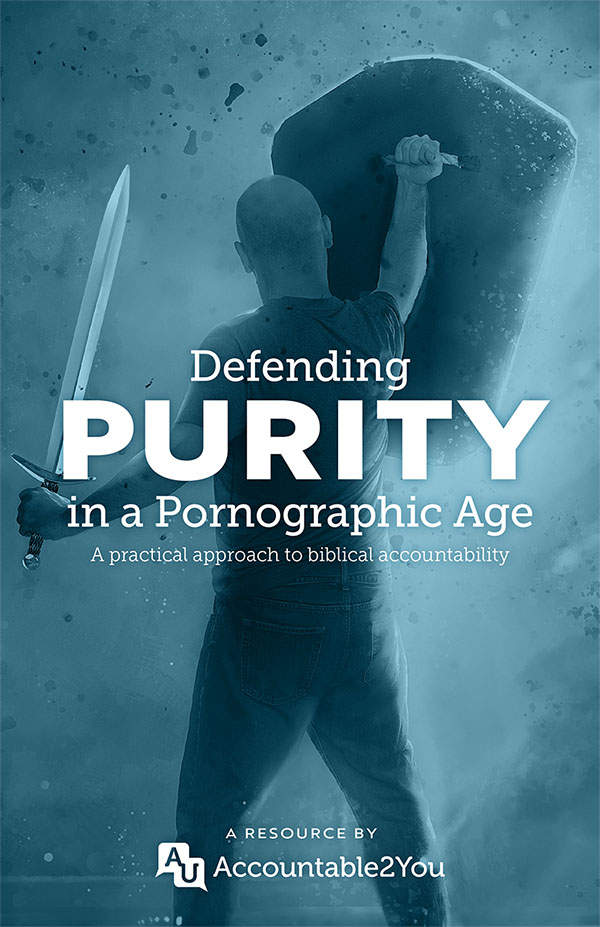Little children, make sure no one deceives you; the one who practices righteousness is righteous, just as He is righteous; the one who practices sin is of the devil; for the devil has sinned from the beginning.
1 John 3:7–8
Our practices define and shape us. In God’s eyes, what we do is proof of what we really believe. The epistle of 1 John is a lesson in this truth, and James says bluntly that “faith without works is dead” (James 2:26). Furthermore, we become what we repeatedly do. Practicing the right things will make you, for example, a better athlete or musician, but practicing the wrong things makes you a worse liar or adulterer.
The Purity Shield™ identifies three fortifying practices that strengthen your pursuit of purity and your defense against temptation. They describe the interaction between the three vital defenses in the corners of the Purity Shield.
These practices are not separate from the defenses; they’re another way of looking at the same concepts. Each practice represents the interaction between two defenses. So, for example, regular repentance happens when you practice the first two defenses together (Flee from Sin and Come to Christ).
While these are certainly not the only practices necessary to grow as a Christian, they are essential to reinforce your defenses against impurity and sexual temptations.
Regular Repentance
At the intersection of Flee from Sin and Come to Christ is regular repentance: the lifelong practice of turning from sin to Christ. It begins when someone first believes the gospel, repents of their sins, and trusts in Jesus Christ for salvation. But that’s only the beginning!

Many believers misunderstand repentance as something they did when they first received Christ. But repentance is something we should be doing—an ongoing, regular practice for every Christian.
“Repent and believe” is the two-cycle engine of the Christian life, not just the ignition switch. Every day, every hour, we must continually turn away from our sin and look to Jesus Christ in faith (see Job 1:1). Each time we fall for the lies of the world, the flesh, and the devil, we must repent again and choose by faith to believe God’s Word.
True repentance is the result of godly sorrow, which means brokenness over your sin before a holy God. Watch out for worldly sorrow, which makes you feel bad for what you’ve done, but is motivated by selfish regret instead of biblical conviction of sin: “For godly sorrow produces a repentance without regret, leading to salvation, but the sorrow of the world brings about death” (2 Corinthians 7:10 LSB).
Christian Community
At the intersection of Come to Christ and Share with Others is Christian community: the practice of drawing near to God alongside other believers in a local church and in other relationships.

The first level of being accountable to one another is simply spending time with other believers. Scripture warns us not to forsake the assembly of believers because we need the encouragement and admonition of others, especially during times of trial and temptation:
And let us consider how to stimulate one another to love and good deeds, not forsaking our own assembling together, as is the habit of some, but encouraging one another; and all the more as you see the day drawing near. (Hebrews 10:24–25)
You become like the people you spend time with, so choose your friends and associations wisely. While sharing life with other followers of Jesus, we can encourage each other to become more like our Lord: “He who walks with wise men will be wise, but the companion of fools will suffer harm” (Proverbs 13:20).
Biblical fellowship means a shared life, the opposite of isolation and individualism. It means you have friends and mentors, brothers and sisters, who love and know you. It means you are part of something bigger than yourself: the church, the family of God, the body of Christ (1 Corinthians 12:12–27).
If you want to cultivate purity in your life, join yourself to a local church that teaches and obeys the Word of God. Spend as much time as possible “with those who call on the Lord out of a pure heart” (2 Timothy 2:22) and seek out people you can trust to hold you accountable.
Thoughtful Transparency
At the intersection of Flee from Sin and Share with Others is thoughtful transparency: the practice of deliberately exposing relevant details of your life to trustworthy individuals who will hold you accountable.

If you want to walk in purity, you need more accountability than, “Hey, I missed you last Sunday.” You must build deep relationships in Christian community that grow into thoughtful transparency. This deeper level of accountability requires a commitment to humility and honesty.
Transparency should be thoughtful, not indiscriminate. You probably should not stand up on Sunday morning and share the details of your sexual sin with the whole congregation. Thoughtful transparency means you are completely honest and open with one or more brothers (or sisters) in the Lord, confessing your sin and praying together for healing (James 5:16).
For those who are married, the health of your relationship rises or falls on transparency, because it is the foundation of trust. More than anyone else, your spouse has a right to know about your sexual sins, so you must be open about your struggles and failures in this area.
A commitment to transparency means you consistently expose sin in your life and turn away from it, as Paul wrote,
Do not participate in the unfruitful deeds of darkness, but instead even expose them; for it is disgraceful even to speak of the things which are done by them in secret. But all things become visible when they are exposed by the light, for everything that becomes visible is light. (Ephesians 5:11–13)
As terrifying as it feels to bring your sin into the light, that is the only way to escape the darkness of secrecy. When you determine to stop hiding and lying, the results may be painful at first, but God will reward your effort:
He who conceals his transgressions will not prosper, but he who confesses and forsakes them will find compassion. (Proverbs 28:13)

